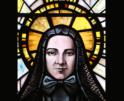
Culture
He refused to desert his flock because of being in personal danger, preferring to share in the danger that his flock was in.

Duncan
Father Stanley Francis Rother (1928-1981), a diocesan priest from Oklahoma murdered doing mission work in Guatemala, was beatified as a martyr Sept. 23 in Oklahoma City. He is the first American-born male to be raised to the altars in the Catholic Church. (There have been several American-born females, like Sts. Kateri Tekakwitha, Elizabeth Ann Seton, and Katharine Drexel.) Pope Francis, who had previously approved the decree of martyrdom, said during his Angelus address on Sunday that Father Rother was "killed in hatred of the faith for his works of evangelization and human development in favor of the poorest in Guatemala."
For 13 years Padre A'Plas, as he was called by the Tz'utujil Indians, had worked selflessly at a mission in Santiago Atitlan, a remote village, where he served as pastor, learning their languages (even translating the New Testament into their native tongue), administering the sacraments, building a farmers' co-op, a school, and a hospital, and the first Catholic radio station.
The problem was that Guatemala was in the midst of a civil war. The reigning oligarchy, backed by the military and paramilitary organizations, was struggling to maintain its hold on a country where the rural poor, largely Native American, were deprived of a share in the political and financial powers that be, and some were in open or clandestine rebellion. The international background was the Cold War, in which the great fear was of communist infiltration of liberation movements. Parishioners of Father Rother began to disappear when the military occupied his town, including one of his catechists. Rumors began to circulate that the pastor was himself on a death list.
There are a couple of books about Blessed Stanley Rother's story that are well worth reading: Henry Nouwen's 1985 book "Love in a Fearful Land: A Guatemalan Story," revised and reissued in 2006 by Orbis Books for the 25th anniversary of Father Rother's murder; and Maria Ruiz Scaperlanda's more comprehensive 2015 "The Shepherd Who Didn't Run," published by Our Sunday Visitor.
The picture that emerges of Blessed Stanley Rother is of a strong, understated and simple priest who could draw on his farming upbringing to be a handyman when needed. Like St. Joseph, he watched over the Church family entrusted to him. He refused to desert his flock because of being in personal danger, preferring to share in the danger that his flock was in. In writing to a newly-ordained priest back home the month before his death, he advised: "'Service' has to be our motto. I have heard that a group of priests in Oklahoma are expecting to be served, rather than to serve. That is one accusation I don't want...Pray for me."
He had failed out of seminary because of his difficulty learning Latin, only to be given a second chance at Mt. St. Mary's Seminary in Emmitsburg, Maryland, at the urging of his parish priest and the local bishop. (His academic difficulties in seminary are like the poor academic record of Capuchin Solanus Casey, the next American to be beatified this coming November in Detroit.)
He was shot and killed by three masked gunmen who entered the room where he was sleeping during the night on July 28, 1981. He had told others that, if they came for him, he did not want to be taken from his rectory, and that they would have to kill him right there. He would thus avoid becoming one of the "desparecidos," those who were kidnapped and disappeared, without family and friends knowing what had happened to them. No, his blood-stained room and his lifeless corpse would attest to his martyrdom and his love for his people. The room where he was killed was subsequently turned into a chapel with the Blessed Sacrament reserved. It is a place of silence and prayer. And, in the parish mission at Santiago his heart is venerated by the thousands of locals that loved Padre A'plas and were so loved by him that he gave his life for them.
- Dwight G. Duncan is professor at UMass School of Law Dartmouth. He holds degrees in both civil and canon law.
Recent articles in the Culture & Events section
-
Scripture Reflection for April 14, 2024, Third Sunday of EasterDeacon Greg Kandra
-
St. Helena's House is established in the South EndThomas Lester
-
Is this synodality?Russell Shaw
-
Poking the hornet's nest of IVFFather Tadeusz Pacholczyk
-
A eucharistic word: MissionMichael R. Heinlein


















